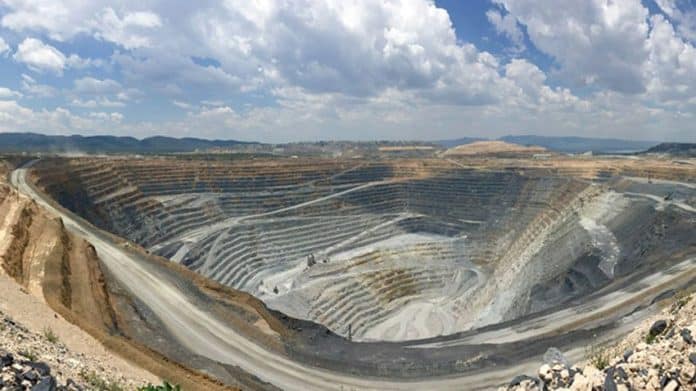Legislation to ban open-pit mining in Mexico was passed out of committee last week and the Chamber of Deputies will take up the bill when Congress is back in session in September.
The legislation aims to protect the environment and prevent water shortages in nearby communities.

The measure is part of a comprehensive package of constitutional reforms submitted to Congress in February by President Andrés Manuel López Obrador. Congress recessed at the end of April but committees have been deliberating over the reforms, including a controversial bid to overhaul the judiciary.
In Mexico, constitutional reforms must be approved by a two-thirds vote in both the Chamber and the Senate, as well as by the majority of state congresses. López Obrador’s ruling Morena party and its allies swept to victory in the June elections. They now await a ruling from the Federal Election Tribunal later this month to see if they won qualified majorities in both houses.
Lopez Obrador has made it clear that he disapproves of the mining contracts his predecessors approved for private interests — his administration has not granted any new concessions since he took office in 2018.
In addition to the ban on open-pit mining and fracking, if approved, the reform would largely prevent the exploitation of water in areas with water scarcity.
The proposal has been met with criticism from the mining sector.
The Mexican Mining Chamber (Camimex) claims the reforms would cause a 1% contraction in Mexico’s GDP (a loss of roughly 250 billion pesos) and threaten some 200,000 jobs.
This legislation “would have devastating consequences for development and economic stability,” Camimex said in a statement. “It would limit the capacity to transform the country’s natural resources into development opportunities and slow the transition to clean energy.”
Camimex says 60% of the value of Mexico’s mining sector comes from open-pit mining.
For its part, the Association of Mining Engineers, Metallurgists and Geologists (AIMMGM) insists the ban would put Mexico’s mining sovereignty at risk and could make national industries dependent on imports. It also cautioned that such a law could prompt a recession in regions of the country that depend on mining.
With reports from Reuters, Forbes México, El Economista and Energy21
